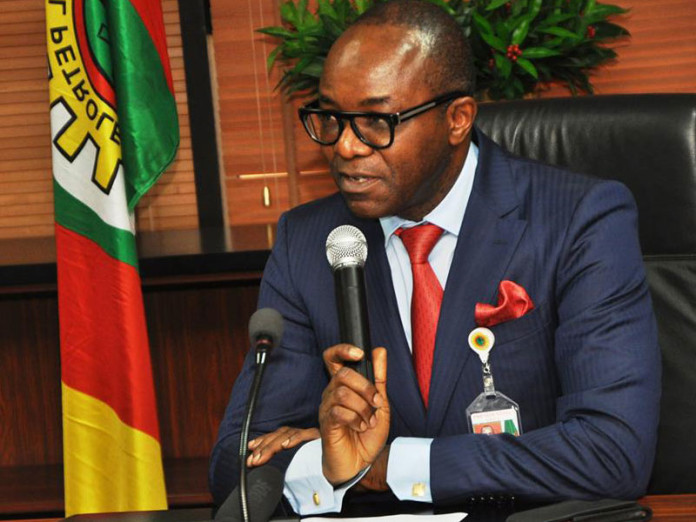
REASON has finally prevailed with the Federal Government’s decision to concession the country’s four ailing refineries. August is the deadline; and from that date, repair works on them will start counting, which will last between 12 and 18 months. This will pave the way for their return to optimal operation. This is still good news despite the flip-flops of the last two years.
Revealing this in Vienna, Austria, while attending the 172nd meeting of the Organisation of Petroleum Exporting Countries, the Minister of State for Petroleum Resources, Ibe Kachikwu, said the concessionaires will repair the refineries, vowing that no public funds will be expended. As “… a highly technical area, what we have done is to invite those who have experience in refining. But it’s open, anybody who feels he has skills and has the money is welcome,” the minister said. The investors, he added, would recoup their money through incremental production.
Nigeria spent N2.5 trillion to import 24.4 billion litres of refined petroleum products in 2016. This comprises N2.19 trillion on petrol; N505.8 billion worth of diesel and N70.76 billion on kerosene, says a National Bureau of Statistics report. But this should not be so in a country that is a major global crude oil producer.
There are concerns in some quarters, especially in the Senate, that the concession might not follow due process. This was why it demanded that the reported concession of the Port Harcourt refineries to the Nigeria Agip Oil Company be halted. The NAOC is a subsidiary of Eni – an Italian oil giant. The firm recently entered into an agreement with Nigeria to construct a $15 billion refinery and power plants. However, Kachikwu faulted the anxiety about transparency by emphasising that a final decision on the beneficiaries had not been taken.
A technical committee put in place to study the transaction will soon submit its report to the steering committee, which the minister chairs, after which it will be submitted to the board of the Nigerian National Petroleum Corporation for action. In view of how bid rounds were conducted in many of the privatised or commercialised public assets, and the failure of the eventual operators to perform in order to realise the set goals, government’s resolve to invite only tested operators is not wide of the mark.
What is clear, however, is that the Bureau of Public Enterprises, despite its abysmal record, should not be left out of the transaction, being the statutory body in the country with the responsibility to supervise such transactions, as enshrined in Part III, Section 14 of the BPE Act. It is the only way to guarantee the legitimacy of the contract and safeguard its cancellation by any future administration.
Over three decades of petroleum products importation, driven primarily by official corruption, has rendered the refineries obsolete. Every government since 1999 has injected billions of naira into turnaround maintenance of the refineries, without achieving the desired objective of maximising their productive capacity to meet local demand.
According to the NNPC that manages the four refineries in Warri, Kaduna and Port Harcourt (two), their combined capacity utilisation increased to 36.73 per cent in January, as against the 7.55 per cent in December 2016. This was why subsidy fraudsters took advantage of the malady in 2011 and siphoned N1.7 trillion, going by the findings of the House of Representatives that conducted investigations into it.
Convinced that the refineries had become more of liabilities than assets, the National Refineries Special Task Force chaired by Idika Kalu, which X-rayed their usefulness in 2012, recommended that they be sold within 18 months. Instead of doing so, the Federal Government came up with a plan to borrow $1.6 billion under the immediate past Minister of Petroleum Resources, Diezani Alison-Madueke, for their repairs, to put them in good stead for sale.
Now, the idea to concession has put paid to the renewed effort to borrow about $6 billion from foreign lenders to do another TAM, as the NNPC Group Managing Director, Maikanti Baru, squealed with delight at the Offshore Technology Conference in Houston, United States last month. Apparently, the concession, as opposed to the outright sale of the 445,000 capacity refineries, is a compromise package.
In pursuing this, Kachikwu should be mindful of why the privatisation or commercialisation programme in the country so far has been a charade. In this regard, the Ajaokuta Steel Company and Nigerian Telecommunications Limited still leave a sour taste in the mouth. Enraged by technical and financial incompetence of electricity generation and distribution companies (public assets) that government sold to private operators in November 2013, the national consensus today is that their licences be revoked and fresh capable investors invited.
With Aliko Dangote’s $9 billion refinery, which has a capacity bigger than the four public refineries combined, due to start production latest by 2019, the point should be clear to the government that this is a sector better led by the private sector. It is so in Singapore, India, the United States and other countries. Besides the concession plan, the ultimate endeavour should be for the Federal Government to completely let go of the refineries. This will eventually unleash the value-chain benefits of the oil subsector – job and wealth creation – which the economy badly needs now.
END

Be the first to comment